The 19th Annual Meeting of the International Conference on Genomics (ICG-19) successfully concluded at the BGI Center in Shenzhen. The event brought together over 100 leading scientists, researchers, and industry leaders from multiple countries and regions including the U.S., UK, Denmark, Australia, Singapore, and China, who shared the latest advancements in genomics research and applications. Centered around the theme “Omics for All,” the conference explored future directions in biotechnology and bioindustry innovation and development while fostering academic freedom and international collaboration.
New Perspectives on Human Diseases
On November 23, the keynote session focused on trending topics in human diseases, including cancer research, precision medicine, reproductive health, and mental illness. Latest discoveries and insights presented by leading scientists offered new perspectives on advancing healthcare and extending longevity, marking significant steps toward addressing some of the most pressing global health challenges.
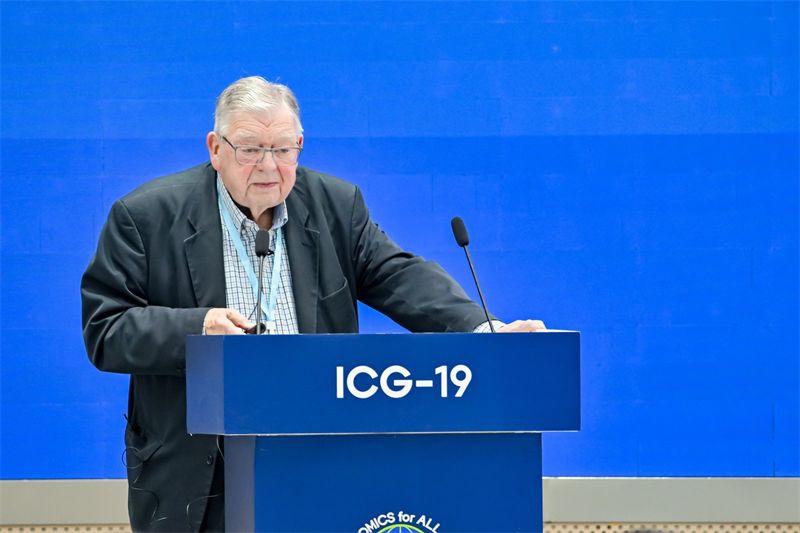 Sir Walter Bodmer, Professor at the University of Oxford, discussed the critical role of cellular differentiation and gene expression in cancer development.
Sir Walter Bodmer, Professor at the University of Oxford, discussed the critical role of cellular differentiation and gene expression in cancer development.
Sir Walter Bodmer, Professor at the University of Oxford, discussed the critical role of cellular differentiation and gene expression in cancer development. He explained that while mutations in protein-coding genes have traditionally been the focus of cancer research, stable gene expression variations - regulated by DNA modifications such as methylation - are also key "drivers" of cancer progression. Professor Bodmer emphasized that DNA-coded functional RNAs, which play a major role in normal cell differentiation, likely contribute significantly to cancer's evolutionary progression. He also highlighted the potential of germline mutations in functional RNA-coding regions as a source of inherited genetic susceptibility to disease.
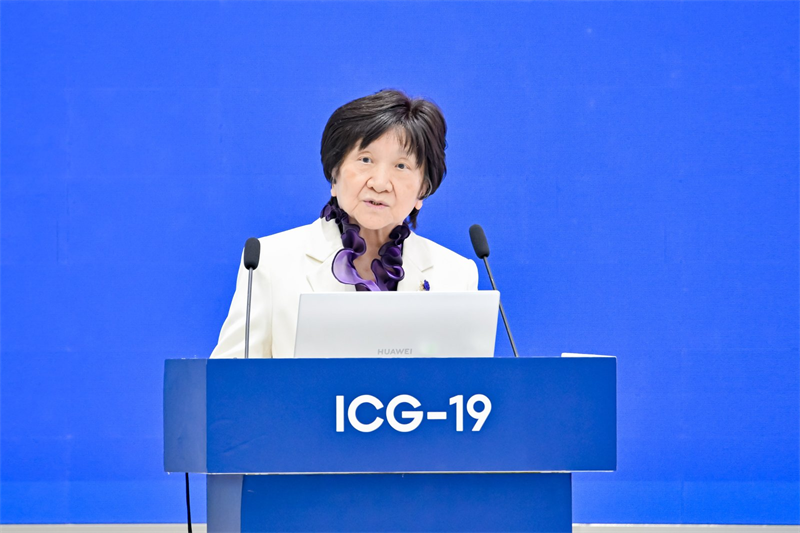 Guangxiu Lu, Honorary President of the Reproductive and Genetics Hospital of CITIC-XIANGYA, shared her expertise on the comprehensive prevention and treatment of hereditary tumors and rare diseases.
Guangxiu Lu, Honorary President of the Reproductive and Genetics Hospital of CITIC-XIANGYA, shared her expertise on the comprehensive prevention and treatment of hereditary tumors and rare diseases.
Guangxiu Lu, Honorary President of the Reproductive and Genetics Hospital of CITIC-XIANGYA, shared her expertise on the comprehensive prevention and treatment of hereditary tumors and rare diseases during the conference. She emphasized the importance of proactive healthcare, underscoring the need for a prevention-first approach to address hereditary tumors and rare diseases through integrated strategies. Professor Lu also introduced the "Changsha Model," a framework developed under the leadership of her and Dr. Ge Lin, Director of the Reproductive & Genetic Hospital of CITIC-XIANGYA. This comprehensive model focuses on a collaborative approach involving "government leadership, public participation, family lineage investigation, genetic testing, and reproductive intervention." Its primary goal is to identify high-risk families for hereditary tumors and rare diseases within large populations and implement comprehensive prevention and treatment measures. The initiative has already achieved significant results, offering new perspectives and directions for the prevention and management of hereditary diseases in China.
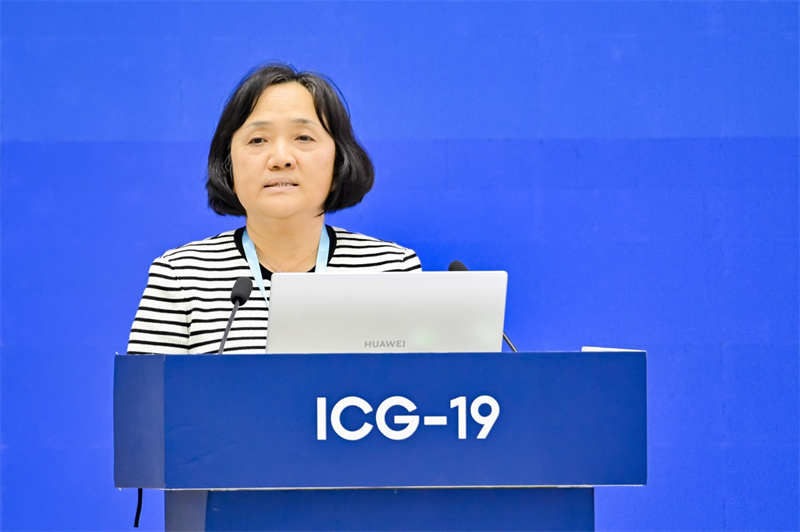 Fang Liu, Professor and Director of the Oujiang Laboratory Mental Health and Drug Research Institute and Academician of the Canadian Academy of Health Sciences, highlighted the significant challenges and advancements in understanding major psychiatric disorders.
Fang Liu, Professor and Director of the Oujiang Laboratory Mental Health and Drug Research Institute and Academician of the Canadian Academy of Health Sciences, highlighted the significant challenges and advancements in understanding major psychiatric disorders.
Fang Liu, Professor and Director of the Oujiang Laboratory Mental Health and Drug Research Institute and Academician of the Canadian Academy of Health Sciences, highlighted the significant challenges and advancements in understanding major psychiatric disorders such as mood disorders and schizophrenia. She noted that recent advancements in genetics and molecular technologies have significantly expanded our understanding of neural circuits, synaptic transmission, and receptor signaling in psychiatry. Liu emphasized the substantial progress made in understanding neurotransmitter receptor complexes, particularly G protein-coupled receptors (GPCRs), and their role in the pathophysiology and treatment of major psychiatric disorders. The findings presented in this perspective critically review the existing data and their implications for developing more effective therapeutic strategies.
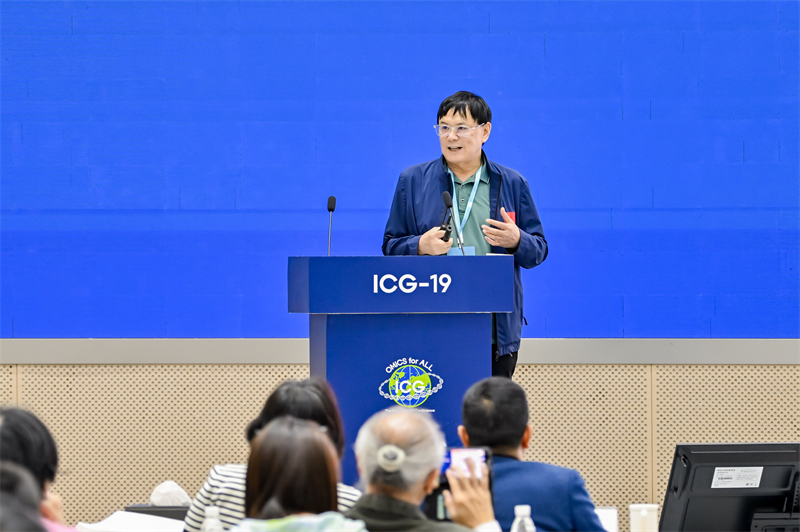 Qionghai Dai, full Professor at Tsinghua University and the Academician of Chinese Academy of Engineering, discuss his recent work in mesoscale intravital fluorescence microscopy based on computational imaging methods.
Qionghai Dai, full Professor at Tsinghua University and the Academician of Chinese Academy of Engineering, discuss his recent work in mesoscale intravital fluorescence microscopy based on computational imaging methods.
Qionghai Dai, full Professor at Tsinghua University and the Academician of Chinese Academy of Engineering, discuss his recent work in mesoscale intravital fluorescence microscopy based on computational imaging methods. Using this method, he and his team observed various large-scale fast subcellular processes, including brain-wide neural recoding in mice at single resolution, 3D voltage propagations in Drosophila larval neurons, membrane dynamics in zebrafish embryos, and large-scale cell migrations during immune response and tumor metastasis in mice, enabling simultaneous in vivo studies of morphological and functional dynamics in 3D.
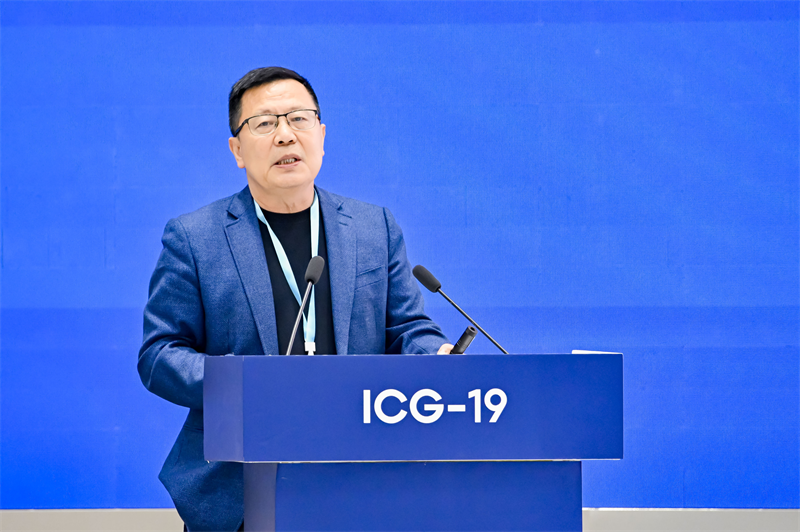 Yutian Wang, Professor at the University of British Columbia and Fellow of the Royal Society of Canada, introduced the therapeutic potential of peptide-mediated protein degradation in degenerative neurological diseases.
Yutian Wang, Professor at the University of British Columbia and Fellow of the Royal Society of Canada, introduced the therapeutic potential of peptide-mediated protein degradation in degenerative neurological diseases.
Yutian Wang, Professor at the University of British Columbia and Fellow of the Royal Society of Canada, introduced the therapeutic potential of peptide-mediated protein degradation in degenerative neurological diseases. The study he presented described a membrane-permeant targeting peptide-based method that rapidly and reversibly knocks down endogenous proteins through chaperone-mediated autophagy or proteasomes, both in vitro and in vivo. This method is a robust and convenient research tool for manipulating endogenous protein levels and may also lead to the development of protein knockdown-based therapeutics for treating human diseases.
Bridging the Gap Between Science and People
A special Science Carnival session was held on November 24. Through keynote speeches and roundtable discussions, experts and scholars from diverse fields, including life sciences, science communication, and education, came together to deliver a captivating feast of knowledge.
Huanming Yang, Academician of the Chinese Academy of Sciences, Co-founder, and Member of the Board of Directors of BGI Group, delivered the opening address. He shared his insights into the life sciences, expressed gratitude to those who have supported BGI, and offered words of encouragement to the younger generation.
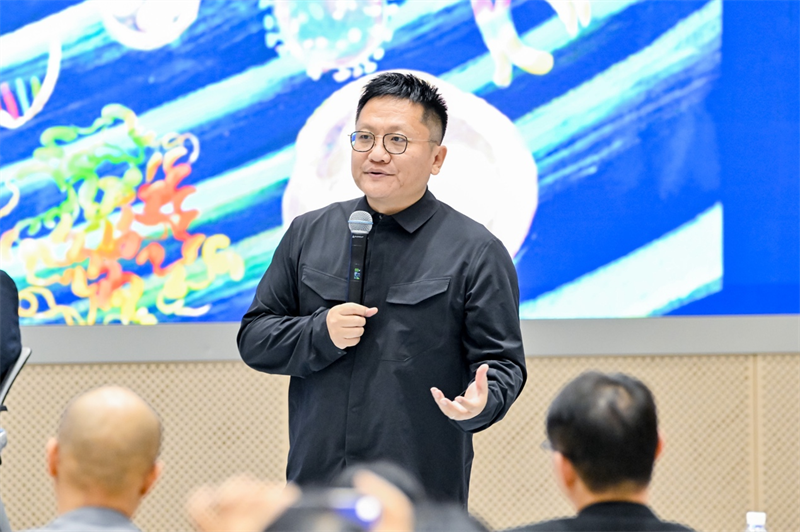 Ye Yin, Chief Executive Officer and Executive Director of BGI Group, presented a public science lecture on the origins and evolution of life.
Ye Yin, Chief Executive Officer and Executive Director of BGI Group, presented a public science lecture on the origins and evolution of life.
During the science communication lecture session, Ye Yin, Chief Executive Officer and Executive Director of BGI Group, along with four other life sciences experts, presented an engaging session around the topic of evolution. They provided accessible explanations and thoughtful analyses to explore the origins and evolution of life, captivating the audience.
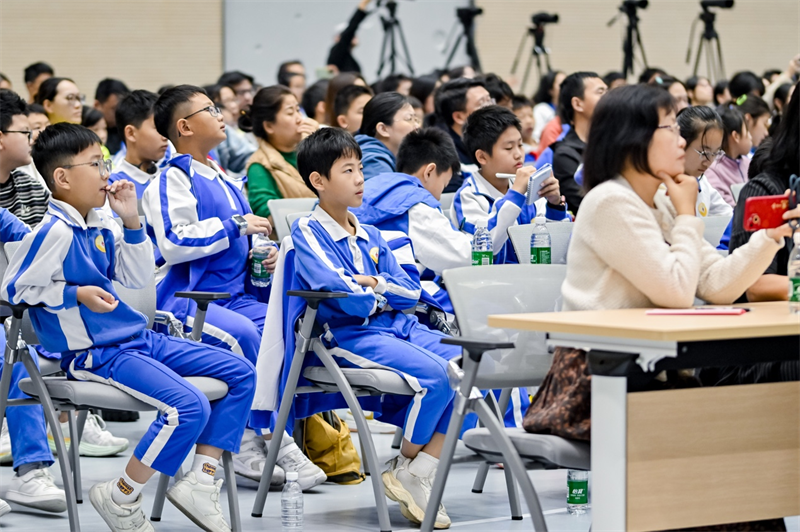 A diverse audience of varying ages attentively listening to the lectures.
A diverse audience of varying ages attentively listening to the lectures.
Participants also witnessed the launch of a life science development program aimed at nurturing young talents, as well as the establishment of a global community for the life sciences and health industry, both of which were jointly initiated by BGI Group and its partner institutions.
The ICG journey continues as ICG-19 Sanya is set to take place from December 4 to 6, offering another platform for leading scientists, researchers, and industry leaders to exchange ideas and explore the future of agricultural germplasm resources, deep-sea biology and resource exploration, and sustainable development.
More information about ICG-19 Sanya can be accessed here: https://www.icg.bio/ICG19/index.html#index09



